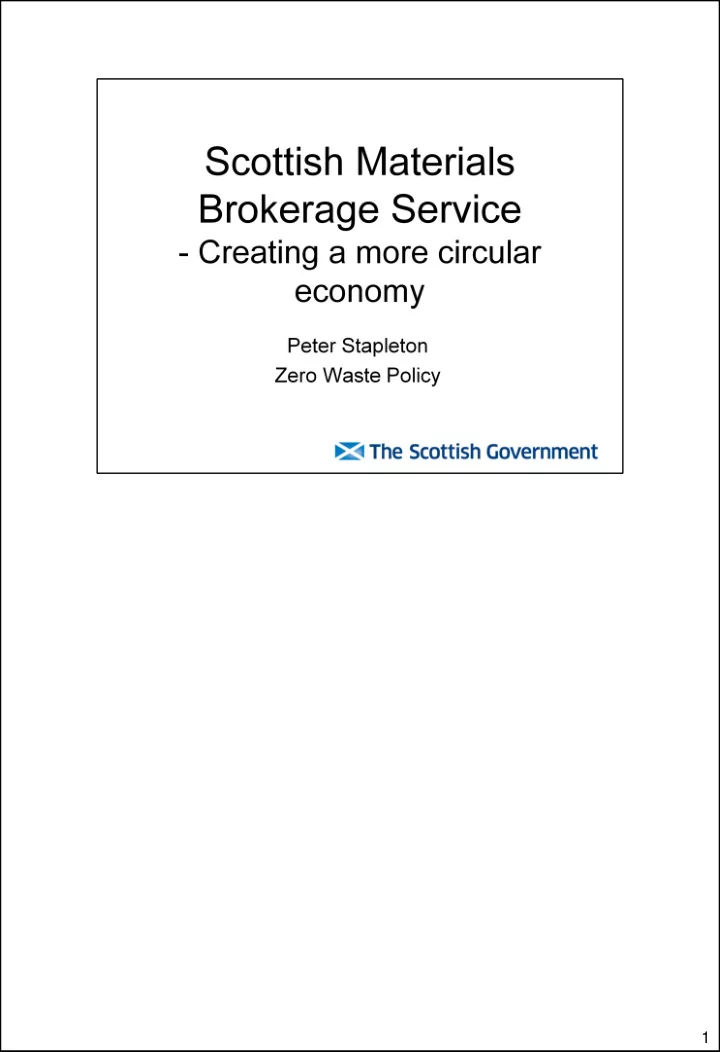

1
2
3
Overall policy aim here is to create a more Circular Economy The term is in contrast to traditional linear model where we ‘ take materials, make them into things, and dispose of them’ In a circular economy we want to keep products and materials in the highest value use for as long as possible Looking at the right side – Best way to maximise both the economic value and environmental benefit is through the Inner loops • Designing products to last • Extending their lifespan through maintenance, repair, reuse and remanufacture • And for items like packaging or food waste which can’t be reused, recycling them to recover the materials at the highest quality possible • Minimising the portion ‘lost’ to energy recovery or landfill There is much more information on the Scottish Government’s thinking on these issues in its recent consultation, ‘Making Things Last’. Brokerage focused on the areas of recycling and disposal 4
Brokerage Service one of 4 key initiatives to supporting a more circular economy through our recycling systems. Waste (Scotland) Regulations 2012 require separate collection of key materials, including food waste, and prohibit any separately collected material going to incineration or landfill Household Recycling Charter – subject to sign-off – LAs coming together to develop of a charter for more consistent household recycling collection systems to increase householder participation and improve the quality and quantity of recyclate and therefore its value . Statutory Code of Practice for Materials Recovery Facilities will introduce a sampling procedure to improve transparency of waste moving through our economy, and importantly to improve the quality of materials arriving for sorting. Finally, the Brokerage Service - bringing together public sector waste and recyclable materials into contracts of sufficient scale and duration to deliver two overall objectives. First objective is to help LAs and public bodies achieve a better deal, and reduce risk from price volatility. • A couple of years ago, we estimated that Scotland’s public sector handles almost 3 million tonnes of waste materials per year. • Councils are responsible for managing 80% of that, at a cost of around £450m. Second objective is to create the business conditions for investment in domestic reprocessing: helping make investment more attractive by providing certainty and scale in the supply of valuable materials. Focusing initially on 3 streams: Residual waste o Single stream materials: commencing with glass - particularly important to Scotland o since we have whole supply chain of reprocessing, bottle manufacture plus SMEs using the material; Dry mixed recyclables (DMR): High (and growing) volume of valuable materials - o paper, card, plastics, tins - with the greatest potential to nurture domestic reprocessing; 5
Recommend
More recommend